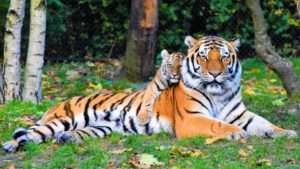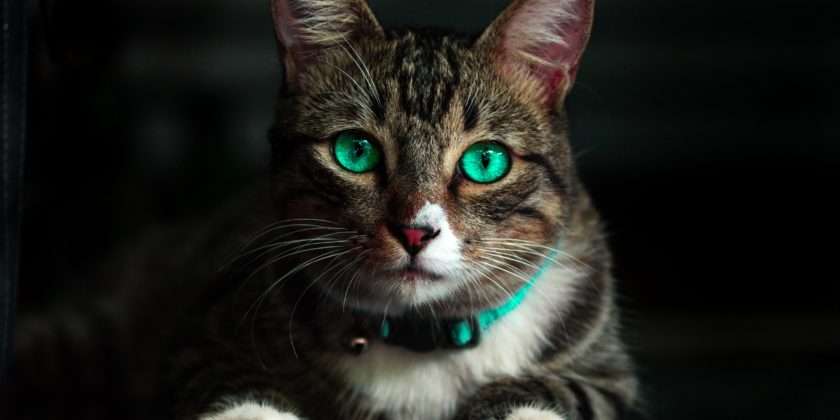Washington, D.C. April 22, 2020 – The U.S. Centers for Disease Control and Prevention (CDC) and the United States Department of Agriculture’s (USDA) National Veterinary Services Laboratories (NVSL) today announced the first confirmed cases of SARS-CoV-2 (the virus that causes COVID-19) infection in two pet cats1. These are the first pets in the United States to test positive for SARS-CoV-2. This post, ”COVID-19 & Animals: 4 Confirmed Cases” seeks to provide helpful information about this infection and its spread.
The cats live in two separate areas of New York state. Both had mild respiratory illness and are expected to make a full recovery. SARS-CoV-2 infections have been reported in very few animals worldwide, mostly in those that had close contact with a person with COVID-19.
At this time, routine testing of animals is not recommended. Should other animals be confirmed positive for SARS-CoV-2 in the United States, USDA will post the confirmed cases of SARS-CoV-2 in Animals in the United States.
State animal health and public health officials will take the lead in making determinations about whether animals should be tested for SARS-CoV-2.
In the NY cases announced today, a veterinarian tested the first cat after it showed mild respiratory signs. No individuals in the household were confirmed to be ill with COVID-19. The virus may have been transmitted to this cat by mildly ill or asymptomatic household members or through contact with an infected person outside its home.
Samples from the second cat were taken after it showed signs of respiratory illness. The owner of the cat tested positive for COVID-19 prior to the cat showing signs. Another cat in the household has shown no signs of illness.
Two Cats tested positive for COVID19

Both cats tested presumptive positive for SARS-CoV-2 at a private veterinary laboratory, which then reported the results to state and federal officials. The confirmatory testing was conducted at NVSL and included the collection of additional samples. NVSL serves as an international reference laboratory and provides expertise and guidance on diagnostic techniques, as well as confirmatory testing for foreign and emerging animal diseases. Such testing is required for certain animal diseases in the U.S. in order to comply with national and international reporting procedures. The World
Organization for Animal Health (OIE) considers SARS-CoV-2 an emerging disease, and therefore USDA must report confirmed U.S. animal infections to the OIE.
Public health officials are still learning about SARS-CoV-2, but there is no evidence that pets play a role in spreading the virus in the United States. Therefore, there is no justification in taking measures against companion animals that may compromise their welfare. Further studies are needed to understand if and how different animals, including pets, could be affected.
Until we know more, CDC recommends the following:
- Do not let pets interact with people or other animals outside the household.
- Keep cats indoors when possible to prevent them from interacting with other animals or people.
- Walk dogs on a leash, maintaining at least 6 feet from other people and animals.
- Avoid dog parks or public places where a large number of people and dogs gather.
If you are sick with COVID-19 (either suspected or confirmed by a test), restrict contact with your pets and other animals, just like you would around other people.

- When possible, have another member of your household care for your pets while you are sick.
- Avoid contact with your pet, including petting, snuggling, being kissed or licked, and sharing food or bedding. If you must care for your pet or be around animals while you are sick, wear a cloth face covering and wash your hands before and after you interact with them.
While additional animals may test positive as infections continue in people, it is important to note that performing this animal testing does not reduce the availability of tests for humans. The U.S. government remains committed to increasing nationwide COVID-19 testing for Americans. In fact, the United States has conducted more than four million COVID-19 tests for humans, which are more tests than the following nations combined: France, the UK, South Korea, Japan, Singapore, India, Austria, Australia, Sweden, and Canada.
COVID-19 and Animals2
Key Points
- We do not know the exact source of the current outbreak of coronavirus disease 2019 (COVID-19), but we know that it originally came from an animal source.
- At this time, there is no evidence that animals play a significant role in spreading the virus that causes COVID-19.
- Based on the limited information available to date, the risk of animals spreading COVID-19 to people is considered to be low.
- We are still learning about this virus, but it appears that it can spread from people to animals in some situations.
For more information, see COVID-19 and Animals Frequently Asked Questions. For information on pets, see If You Have Pets.
Confirmed cases of SARS-CoV-2 in Animals in the United States3
The chart below lists cases of SAR-CoV-2 (the virus that causes COVID-19 in humans) in animals that have been confirmed by USDA’s National Veterinary Services Laboratories.
SARS-CoV-2 is considered to be an emerging disease by the World Organisation for Animal Health (OIE). USDA must report confirmed animal infections in the United States to the OIE.
| Type of Animal | Date Confirmed | State |
| Tiger | April 4, 2020 | New York |
| Lion | April 15, 2020 | New York |
| Cat | April 21, 2020 | New York |
| Cat | April 21, 2020 | New York |
Coronaviruses are a large family of viruses. Some coronaviruses cause cold-like illnesses in people, while others cause illness in certain types of animals, such as cattle, camels, and bats. Some coronaviruses, such as canine and feline coronaviruses, infect only animals and do not infect humans.
Risk of animals spreading the virus that causes COVID-19 to people
Some coronaviruses that infect animals can sometimes be spread to humans and then spread between people, but this is rare. This is what happened with the virus that caused the current outbreak of COVID-19. However, we do not know the exact source of this virus. Public health officials and partners are working hard to identify the source of COVID-19. The first infections were linked to a live animal market, but the virus is now spreading from person to person.
The virus that causes COVID-19 spreads mainly from person to person through respiratory droplets from coughing, sneezing, and talking. Recent studies show that people who are infected but do not have symptoms likely also play a role in the spread of COVID-19. At this time, there is no evidence that animals play a significant role in spreading the virus that causes COVID-19. Based on the limited information available to date, the risk of animals spreading COVID-19 to people is considered to be low.

Risk of people spreading the virus that causes COVID-19 to animals
We are still learning about this virus, but we know it is primarily spreading from person-to-person and it appears that it can spread from people to animals in some situations.
The first case in the United States of an animal testing positive for the virus that causes COVID-19 was a tiger with a respiratory illness at a zoo in New York City. Samples from this tiger were collected and tested after several lions and tigers at the zoo showed signs of respiratory illness. Public health officials believe these large cats became sick after being exposed to a zoo employee who was infected with the virus that causes COVID-19. This investigation is ongoing.
CDC is working with human and animal health partners to monitor this situation and will continue to provide updates as information becomes available. Further studies are needed to understand if and how different animals could be affected by COVID-19.
For more information, visit CDC’s If You Have Pets and Healthy Pets, Healthy People website.
Jay Harold hopes you enjoyed this post, ”COVID-19 & Animals: 4 Confirmed Cases” seeks to provide helpful information about this infection.” Please share it on Facebook and Twitter. and read more about Jay Harold here. Please take this advice from Muhammad Ali and give back to others. “Service to others is the rent you pay for your room here on earth.”




